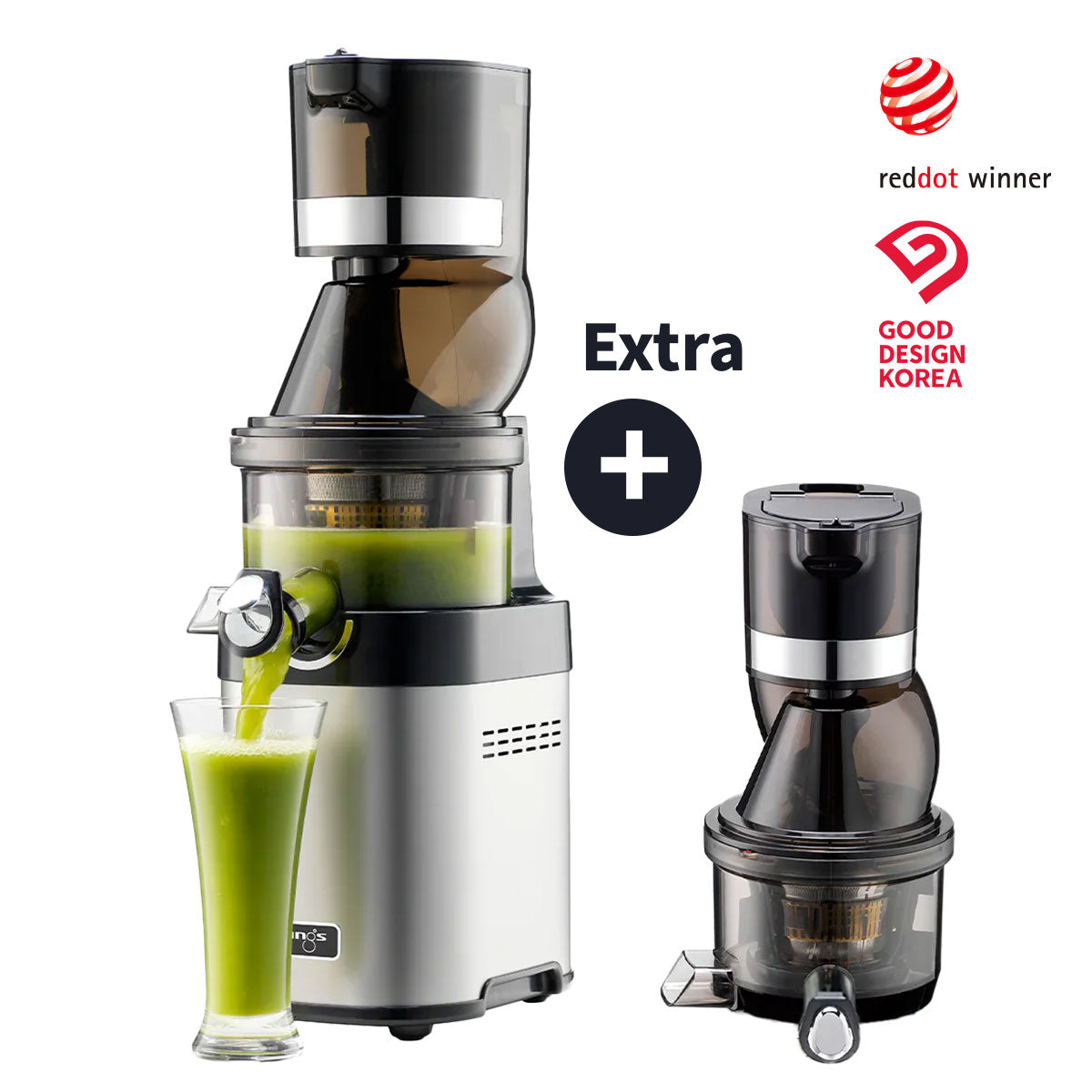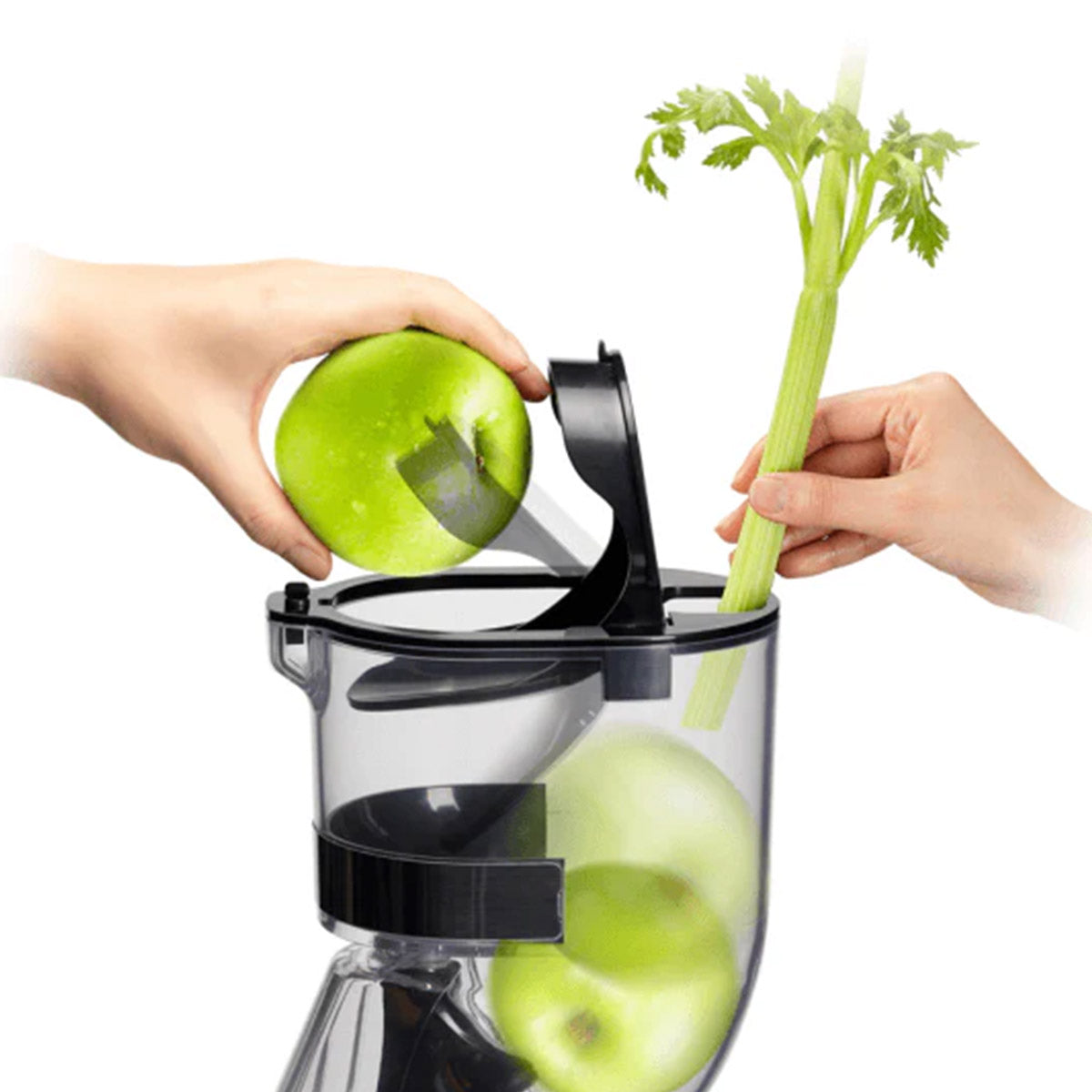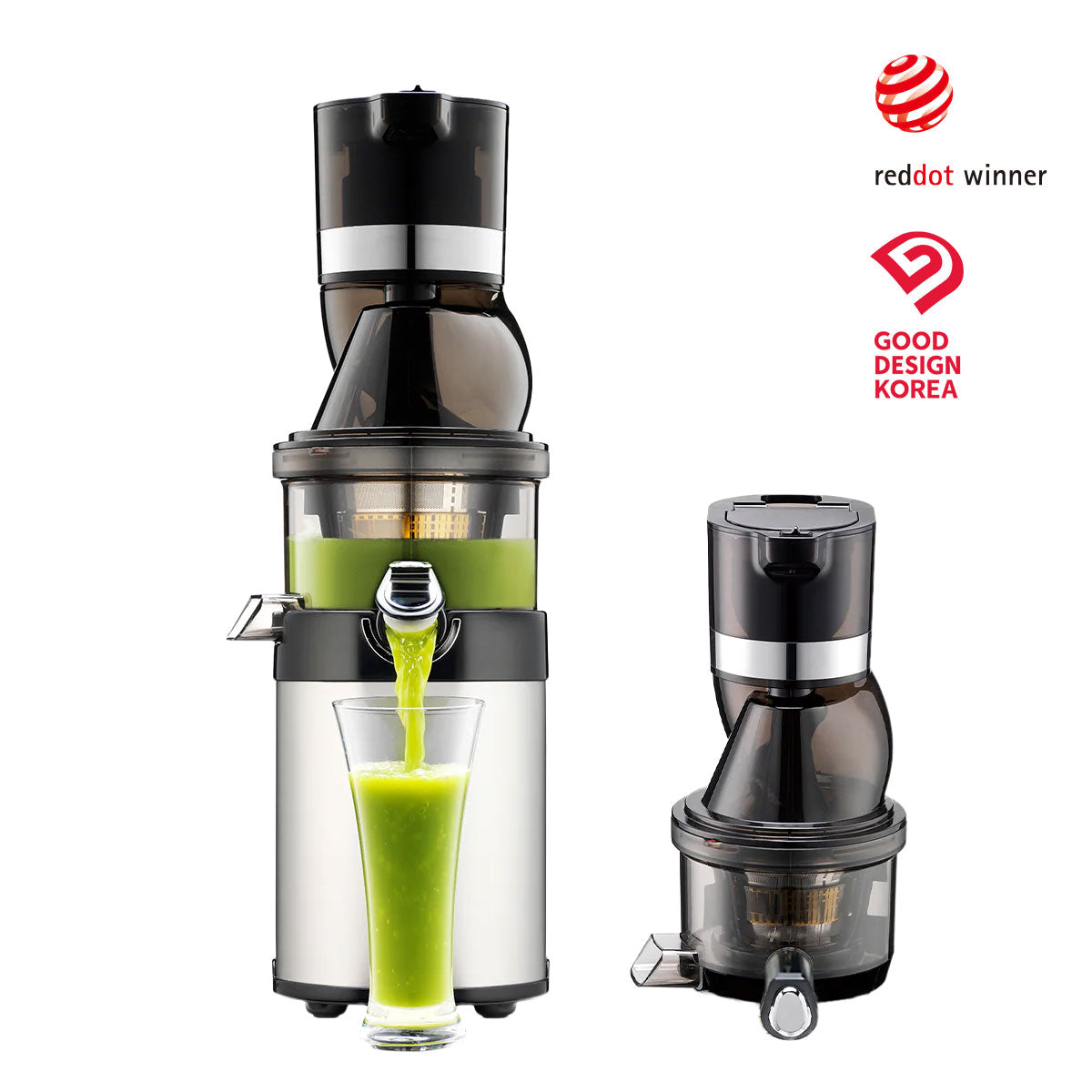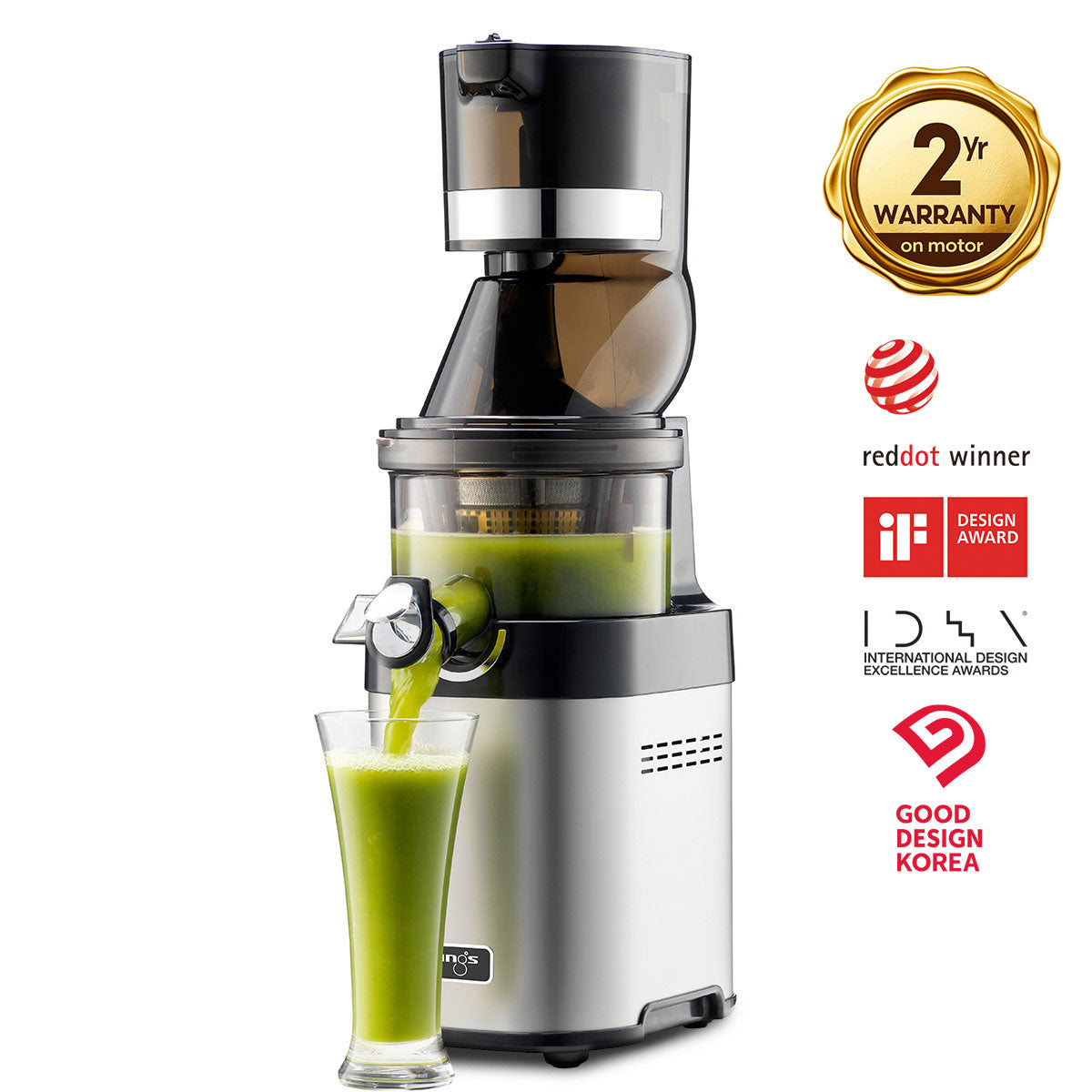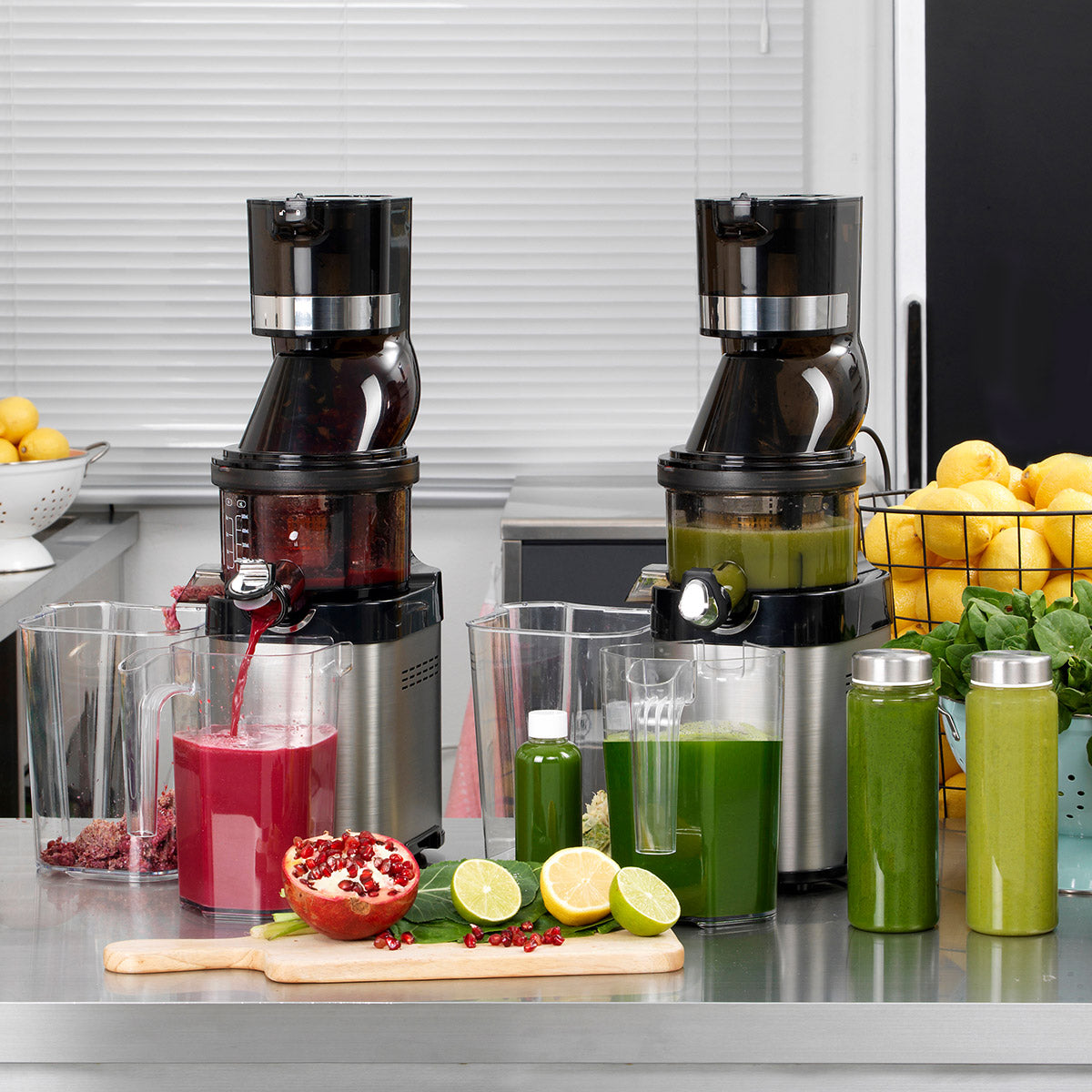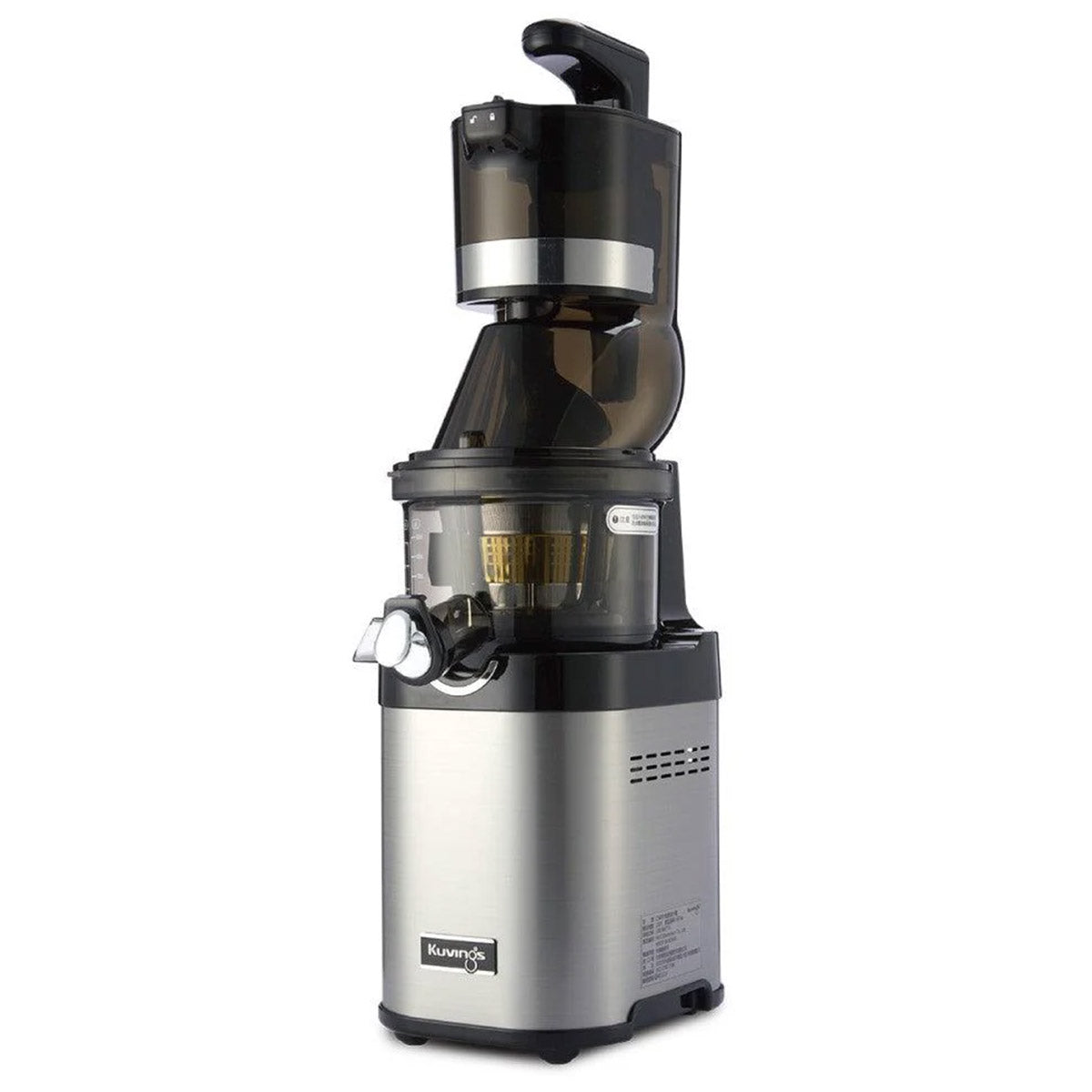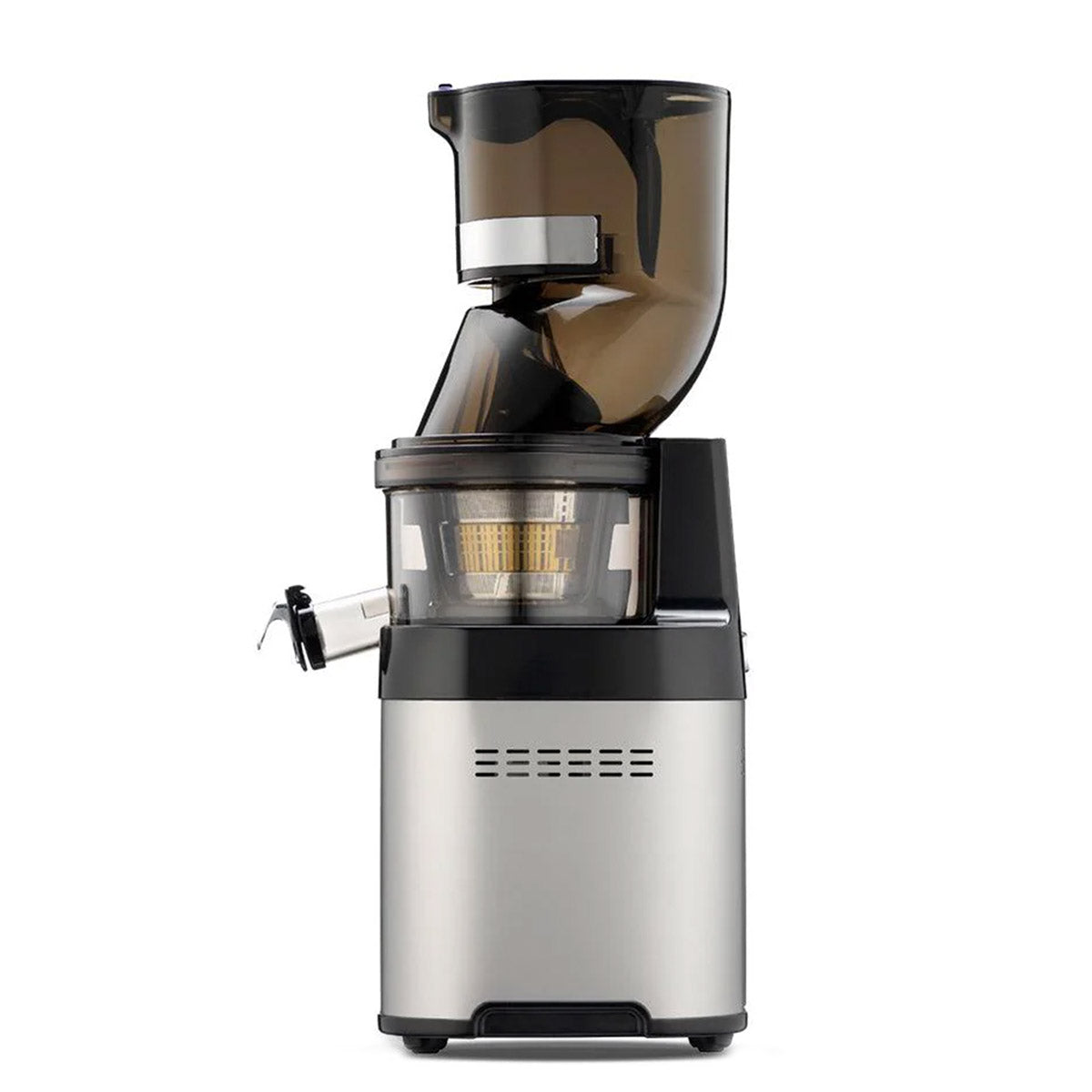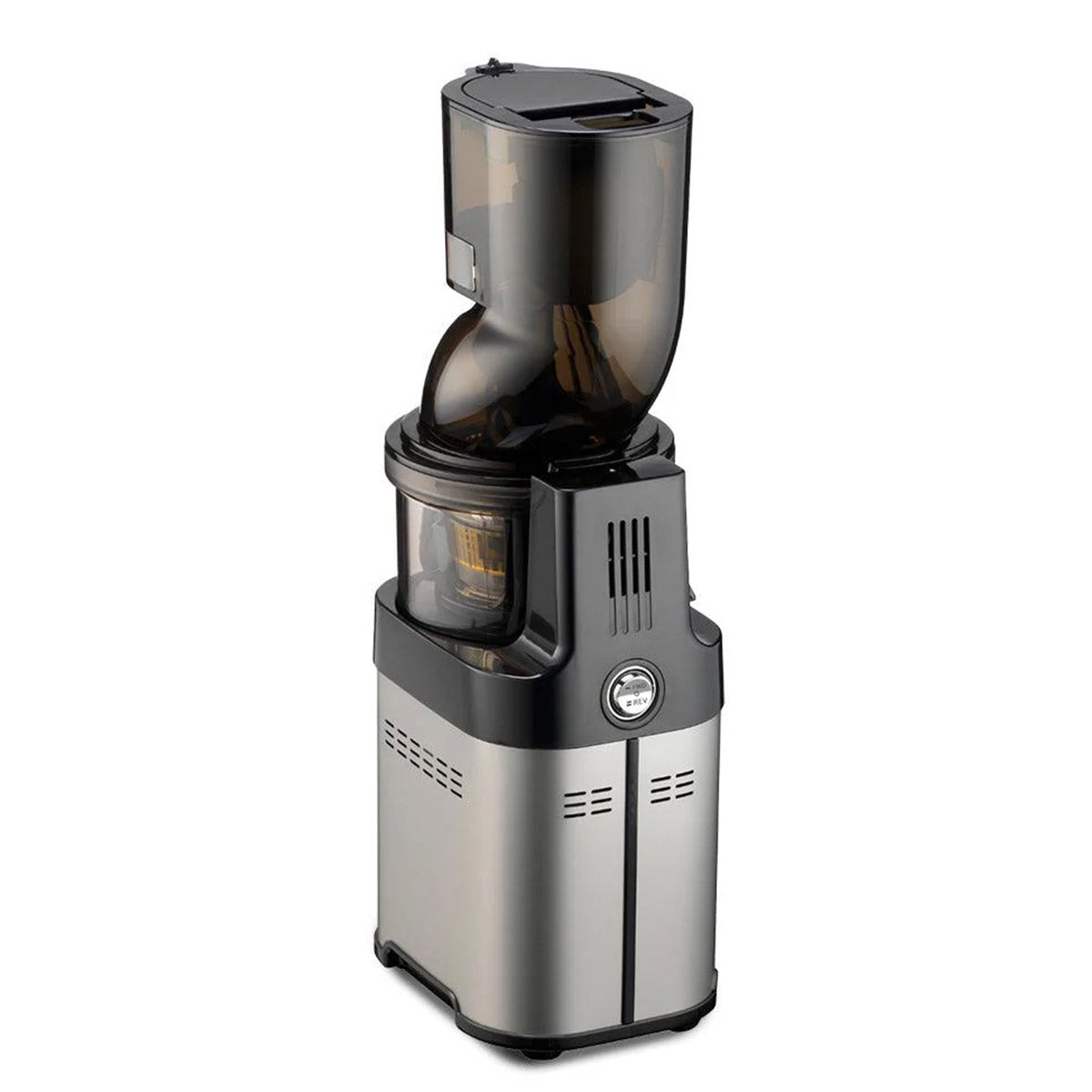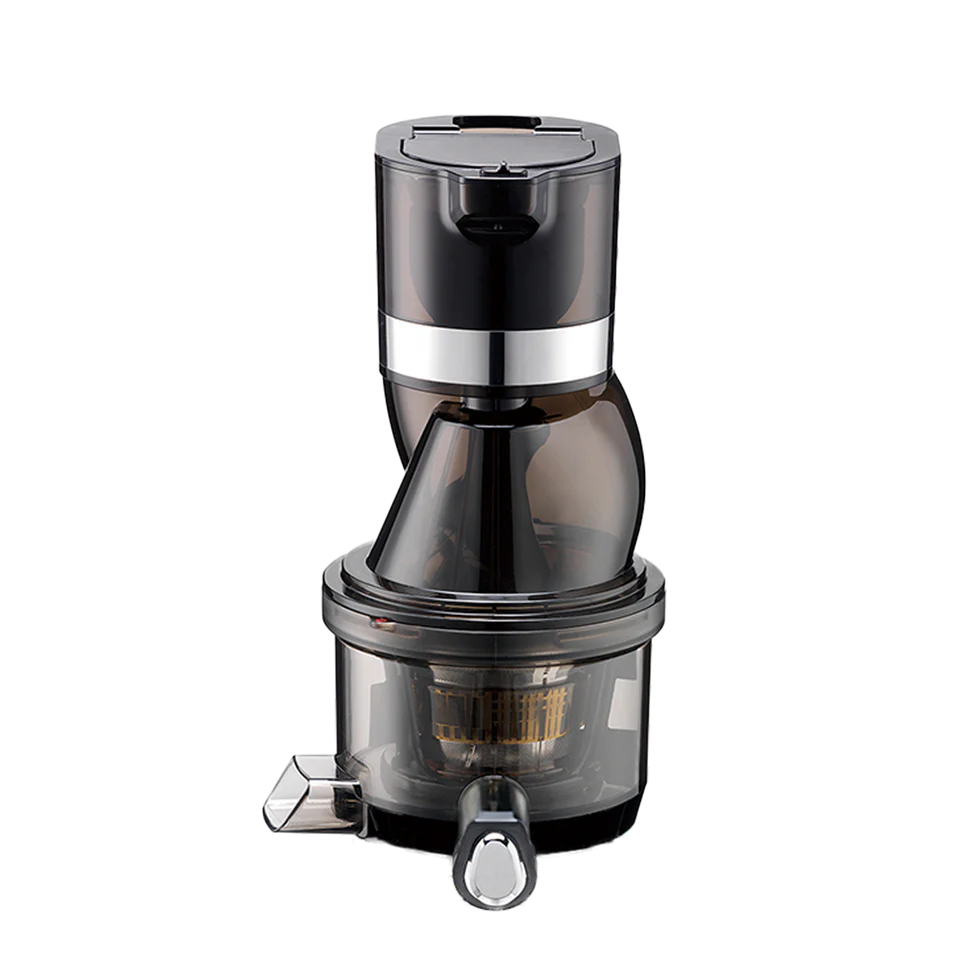Check out Kuvings Cold Press Juicers today!
Whether you're a new mom or a seasoned parenting pro, breastfeeding often comes with its fair share of struggles and pains. It's definitely not an easy journey. Cracked nipples, sleepless nights, neck and body cramps, fatigue and the list goes on.
On top of that, breastfeeding can make you extremely thirsty so it is important to drink enough water to stay hydrated. You may need up to 700ml of extra fluid a day. Never ignore your body’s signal and try your best to consume water from time to time. Water, semi-skimmed milk, infused water, herbal teas, almond milk or unsweetened fruit juices are among good choices.

Is it okay for breastfeeding mothers to drink juices?
Juices aren’t off-limits to new mothers. They can be healthy if they are low-sugar (primarily vegetables without any added sweeteners) and part of a well-rounded, balanced diet. Instead, juices and smoothies can be a quick pick-me up when you are really busy and juggling with a small baby. Many high-fiber smoothies can be made ahead of time which is extra helpful when you are busy. And with the latest technology, cold pressed juices can be kept for up to 3 days without any nutrient degradation and vacuum blenders can retain smoothies for up to 7 days.
Will it somehow affect the baby?
Enjoying a range of foods is good for your baby, as well as you. Eating a nutrient-dense diet of whole grains, protein, healthy fats, fruits and vegetables are generally good for your body at any stage of life especially when breastfeeding. Traces of anything you eat and drink can get into your breastmilk and the foods you eat can flavor it. This may help your baby to be more accepting of new tastes when she starts solid foods at about six months and prevent them from being a picky eater.
However, occasionally, babies may have a reaction to something their mum has consumed. About one breastfed baby in 200 is affected by cow's milk protein allergy (CMPA) if their mum has dairy in her diet. CPMA usually causes mild versions of the following symptoms in breastfed babies. Always monitor your baby condition if they have these reactions:
- itchy skin and a red rash (hives)
- vomiting or reflux
- a poor appetite
- eczema
- changes to her poop
What are the common no-no foods for breastfeeding mothers?
While seafood can be a great source of protein and omega-3 fatty acids, most of them contain mercury or other contaminants. Try to limit seafood that’s high in mercury (swordfish, king mackerel, tilefish) as exposure to excessive amounts of mercury through breast milk can pose a risk to a baby's developing nervous system.
Caffeine can also reach your baby through your breastmilk. Caffeine is a stimulant, and may make your baby irritable and restless. It's sensible to keep your intake below 200mg a day, the same as when you were pregnant.
And of course, alcohol. It's best not to drink alcohol for at least the first three months, as your baby's liver is still maturing. After that, one or two units, once or twice a week, probably won't affect your baby. Drinking alcohol can make you dehydrated and decrease your milk supply.
Here are some flavorful options to keep your breast milk and mood flowing. Cheers!
Coco Booster Smoothie

- 2 tbsp of Oats
- 1 handful Almond
- 1 glass of Full cream milk
- 1 pcs of Banana
- 1 tsp Cocoa powder
Tropical Strawberry Smoothie
- 2 tbsp Yogurt
- 1 handful Strawberry chunks
- 1 glass of Full cream milk
- 1 tsp Honey
Tropical Juice Combination

- Orange
- Carrot
- Ginger
Green Juice Combination

- Green Apple
- Spinach
- Cucumber
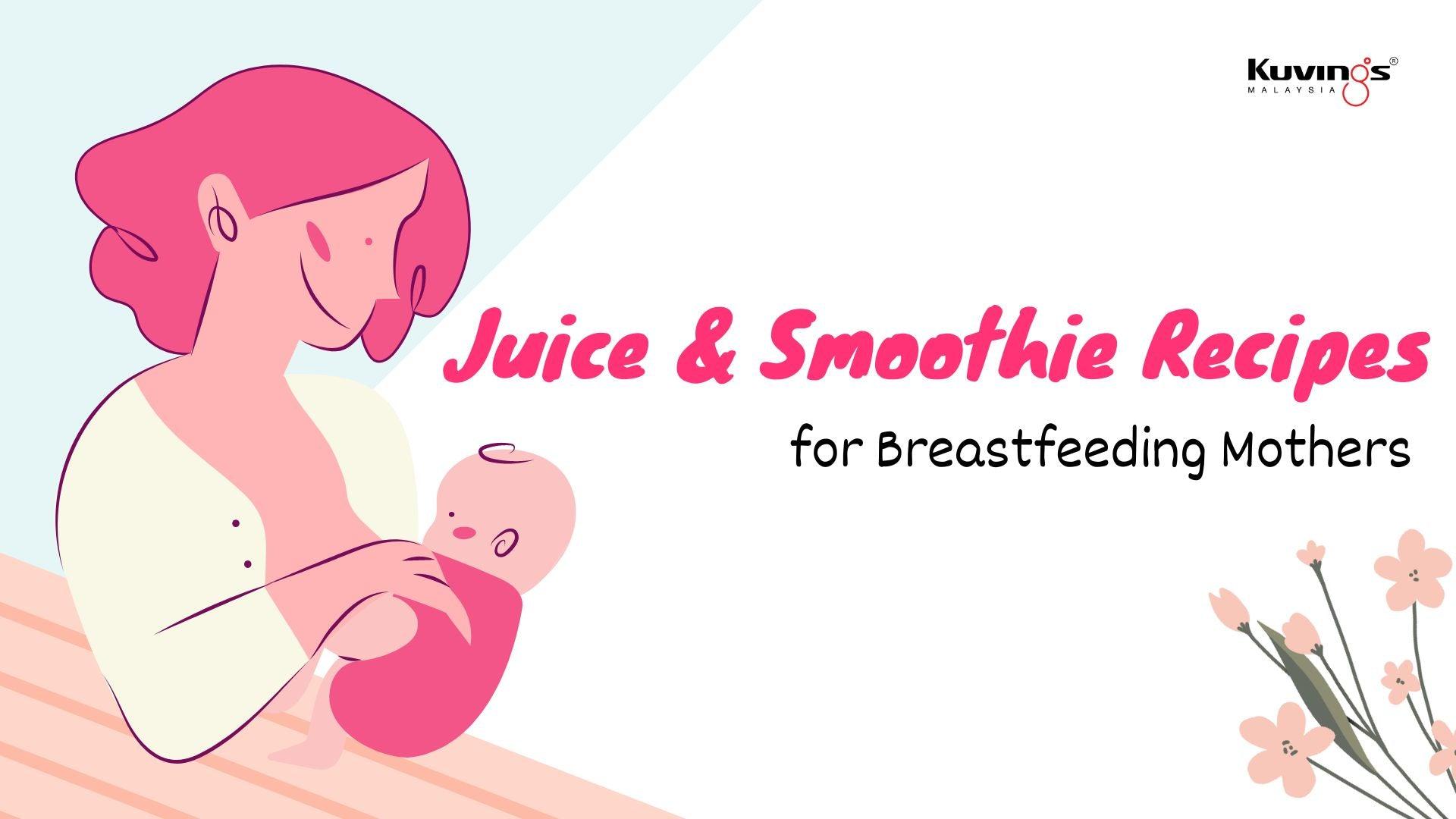

![[NEW] REVO830 Whole Slow Juicer "The Dark Knight" - Kuvings.my](http://kuvings.my/cdn/shop/files/REVO830_multi-function.webp?v=1770275014&width=1200)
![[NEW] REVO830 Whole Slow Juicer "The Dark Knight" - Kuvings.my](http://kuvings.my/cdn/shop/files/contents_compare_01_360x_677de4d1-1209-4ada-b8e3-d1445cee5e84.webp?crop=region&crop_height=360&crop_left=0&crop_top=0&crop_width=360&v=1770275014&width=360)
![[NEW] REVO830 Whole Slow Juicer "The Dark Knight" - Kuvings.my](http://kuvings.my/cdn/shop/files/cold-press-juice_00.jpg?v=1770275014&width=1200)
![[NEW] REVO830 Whole Slow Juicer "The Dark Knight" - Kuvings.my](http://kuvings.my/cdn/shop/files/sub_buying-guide_05_9f06c62f-683c-4247-8c93-efb0111660e5.jpg?crop=region&crop_height=920&crop_left=15&crop_top=0&crop_width=920&v=1770275014&width=950)
![[NEW] REVO830 Whole Slow Juicer "The Dark Knight" - Kuvings.my](http://kuvings.my/cdn/shop/files/IndyBest_banner.jpg?v=1770275014&width=1080)
![[NEW] REVO830 Whole Slow Juicer "The Dark Knight" - Kuvings.my](http://kuvings.my/cdn/shop/files/REVO830_1080x1080_773ec9d9-75c2-495e-b256-6d01ef58ba78.jpg?v=1770275014&width=1080)
![[NEW] REVO830 Whole Slow Juicer "The Dark Knight" - Kuvings.my](http://kuvings.my/cdn/shop/files/EVO820REVO830_1080x1080-_1.jpg?v=1770275014&width=1080)
![[NEW] REVO830 Whole Slow Juicer "The Dark Knight" - Kuvings.my](http://kuvings.my/cdn/shop/files/2022_revo-und-evo_02.jpg?v=1770275014&width=1000)
![[NEW] REVO830 Whole Slow Juicer "The Dark Knight" - Kuvings.my](http://kuvings.my/cdn/shop/files/REVO830_01_540x_636872b5-787d-48dc-a4f6-0d006b49a63f.webp?v=1770275014&width=540)
![[NEW] REVO830 Whole Slow Juicer "The Dark Knight" - Kuvings.my](http://kuvings.my/cdn/shop/files/shopping.webp?v=1770275014&width=600)
![[NEW] REVO830 Whole Slow Juicer "The Dark Knight" - Kuvings.my](http://kuvings.my/cdn/shop/files/2L9A7313-e1690867035583-700x751.jpg?crop=region&crop_height=700&crop_left=0&crop_top=0&crop_width=700&v=1770275014&width=700)
![[NEW] REVO830 Whole Slow Juicer "The Dark Knight" - Kuvings.my](http://kuvings.my/cdn/shop/files/kuvings-whole-slow-juicer-revo830-black-revo830b_main_kitchen_innovation_1667x_64f4e0fc-2684-4f8f-af3b-8aeb0a3cca04.webp?v=1770275014&width=1000)
![[NEW] REVO830 Whole Slow Juicer "The Dark Knight" - Kuvings.my](http://kuvings.my/cdn/shop/files/SNS-REVO830-Lifestyle-62-1-1-Revised0.jpg?v=1770275014&width=990)
![[NEW] REVO830 Whole Slow Juicer "The Dark Knight" - Kuvings.my](http://kuvings.my/cdn/shop/files/REVO830-wholeslowjuicer-coldpress3.webp?v=1770275014&width=900)
![[NEW] REVO830 Whole Slow Juicer "The Dark Knight" - Kuvings.my](http://kuvings.my/cdn/shop/files/3_bf54f2a4-1c87-4015-94d7-3b7e7de053f6.png?crop=region&crop_height=461&crop_left=0&crop_top=0&crop_width=461&v=1770275014&width=461)














